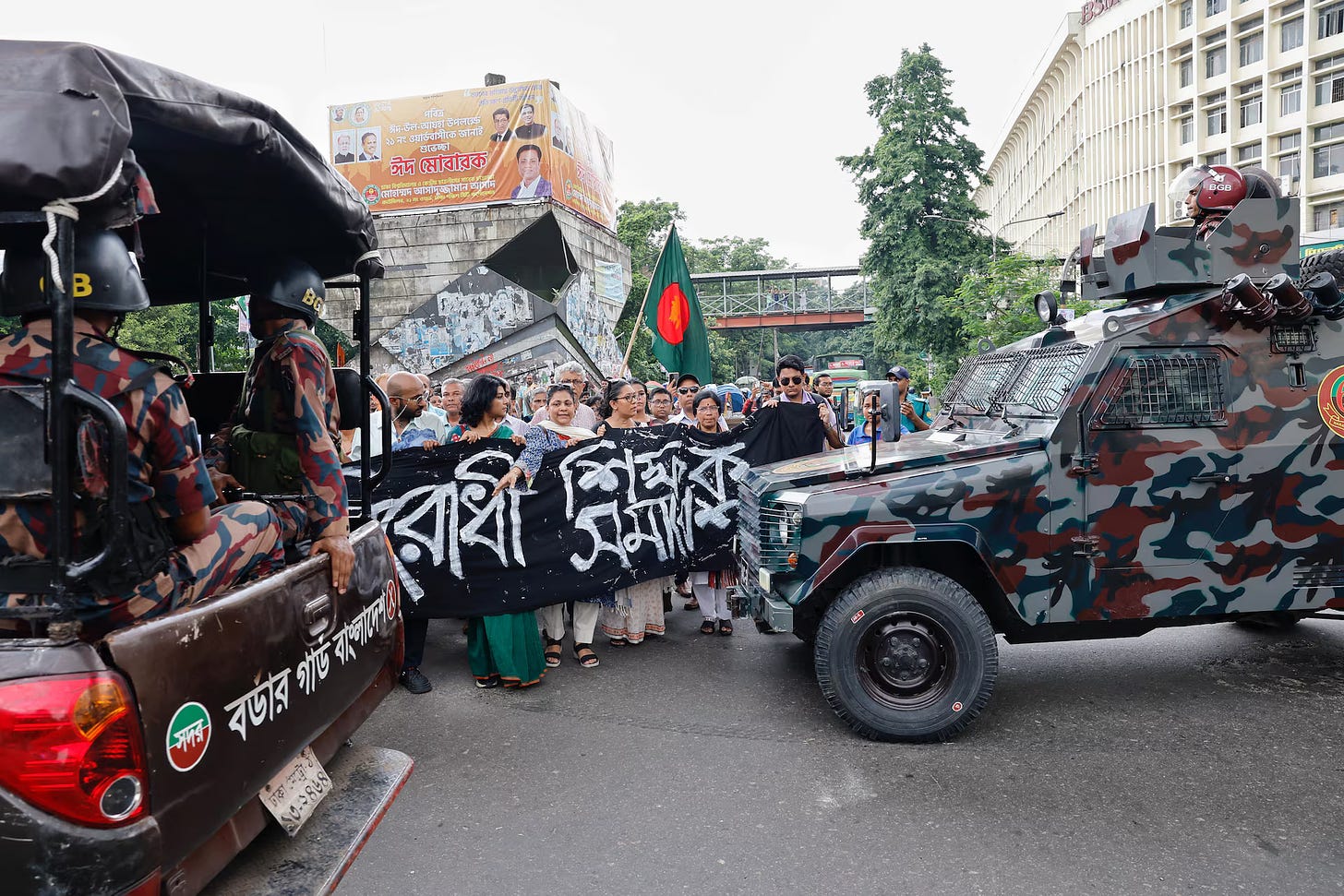Quota Reform Protests in Bangladesh
Six Protesters Killed and Government Calls for Universities To Close

Student and youth activists in Bangladesh were violently attacked on Tuesday 16 July, as they continued their protests demanding reforms in the government jobs quota system which currently allots 30% of jobs for descendants of freedom fighters from the country’s liberation war. At least six people, including three students, and hundreds others were injured when security personnel and members of a pro-government student group attacked students.
According to the reports in the local media, two people were killed in capital Dhaka, three in the southern city of Chattogam and one in the northern city of Rangpur.
Following the large-scale violence, the government announced closure of all universities, colleges, and secondary schools in the country till further notice and asked students to vacate their hostels.
Several universities, including the Dhaka University later issued notices declaring closure for indefinite period. Students demanding the quota reform, however, have alleged that the violence unleashed on them was being sponsored by the government and have vowed to continue their protest in the coming days.
The Bangladesh Chhatra League (BCL), aligned to the ruling Awami League, has been issuing warnings to student protesters telling them to end their protests and get back to class. They have also alleged that the opposition Bangladesh Nationalist Party (BNP) and extremist forces have been backing the protesters in an attempt to derail the Awami League government.
Protesters have refuted the claims made by the BCL about BNP backing the protests and claimed that their protests are supported by students across the political spectrum.
Earlier this week, there were reports of BCL members carrying out search operations in various universities targeting pro-quota reform students. Reportedly, several students were injured after being beaten up by the BCL members.
Prime Minister Sheikh Hasina has also criticized the students protesting for reforms in quota system by alluding them to be taking the side of “Razakars”, a pro-Pakistan militia during the liberation war of Bangladesh in 1971 and asking them to respect the contributions made by the freedom fighters in the country’s liberation instead.
Hasina’s comments had incited fresh protests on Monday with students demanding she take back her statement. One such demonstration was again allegedly attacked by the members of the BCL at one of the colleges in Dhaka.
Tuesday’s protests were called by the pro-reform students in opposition to the BCL attack on Monday. Protesters blocked traffic at most of the crucial junctions in the capital city and were holding demonstrations at several other universities all across the country when they were attacked.
On Wednesday, student protesters held a mock funeral procession in Dhaka for students killed in protests. Meanwhile, some of the student leaders have announced that they will not comply with the government order to vacate the hostels, calling it an attempt by the government to “quell the movement” for reforms.
What is the quota reform?
Protests demanding quota reform broke out last month after a high court overturned a circular issued by the government in 2018 banning such quotas. Though the country’s Supreme Court stayed the high court verdict last week and asked the government to find a solution before the next hearing, protests have refused to stay quiet.
The protesters have been insisting that the government pass a law in parliament to abolish all reservations except those for the disadvantaged and marginalized sections of the society such as women, disabled people, and ethnic minorities. They have called the 30% reservation for the descendants of freedom fighters against the interests of the majority of students. The government has refused to take the matter to the legislature and argued that it will follow whatever the courts decide instead.
The Workers Party of Bangladesh has demanded that the quota system be reformed without compromising its progressive character and protection of the reservation for the deprived and marginalized sections.



